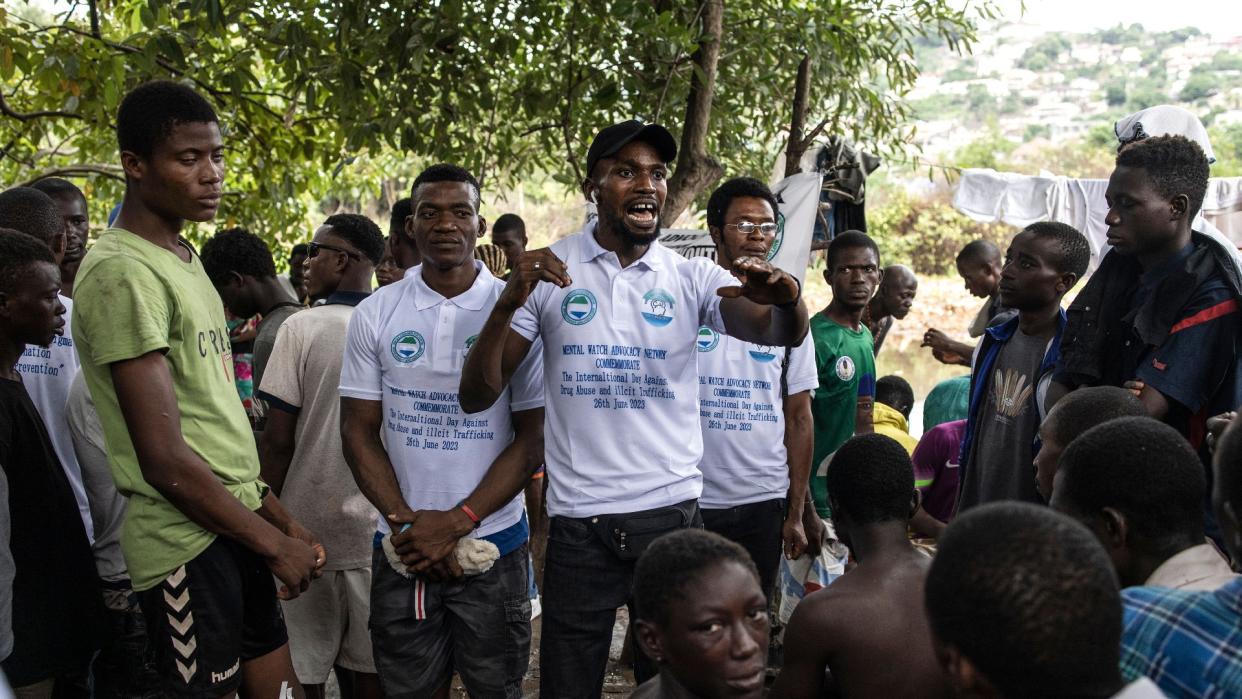Kush: the drug destroying young lives in West Africa

Charities are calling for international efforts to stop the distribution of illegal drugs across African borders amid growing concern over a substance called kush.
The cheap synthetic drug is claiming lives across West Africa – in Sierra Leone, Guinea and Liberia. One hospital in Sierra Leone's capital Freetown reported a big rise in the number of patients with a kush addiction, reported Katy Fallon in The Guardian.
The number of people identified as users, most of whom were men between 18 and 25, increased from 47 in 2020 to 1,101 in 2022. The wider number of people affected is believed to be much greater. "It's so alarming," the hospital's acting medical superintendent, Dr Jusu Mattia, told the paper. "It needs attention."
Catholic charity Caritas, based in the city, has called on the government to "declare a health emergency" over kush and to treat it as "a national priority", said Crux.
What is kush?
It has been likened to a "synthetic cannaboid product – akin to the so-called 'zombie drug' spice", said The Guardian's Fallon, but its exact "origin and composition remain a mystery".
Local authorities have said it is a concoction of chemicals and plants, but it can be made with a range of ingredients, making it harder to stamp out. Doctors say chemicals can include everything from shoe polish to formalin, also used to preserve dead bodies.
The effects are immediate and intense, taking the user into what one addict, Isha, called "a mad world", in a documentary for the BBC last year. Others told The Guardian that it brings on "the kush devil", causing users to sometimes fit, fall asleep standing up, wander into oncoming traffic or self-harm.
In August this year, local news site Sierra Loaded claimed that four people were arrested for allegedly digging up dead bodies with the intention of using the crushed bones for kush. The drug, which is smoked and readily available all around the country, costs around 20p a joint, making it affordable for many people.
Why is addiction on the rise?
Over the past few decades, Sierra Leone's population of 8.4 million has been traumatised by one of Africa's most brutal civil wars, an ebola epidemic, a deadly mudslide and the Covid-19 pandemic.
Its inflation rate reached 54% in September this year, according to Trading Economics, and its economy is on the UN's 46 least developed countries list. The median age is 19.3 years, and youth unemployment stands at 60%.
"In a country with few opportunities for the young," wrote Sally Hayden from Freetown in The Irish Times, "kush offers an escape from the relentlessness of poverty and the many humiliating ways people try to get through it."
In daily conversation, "the scourge of kush is referenced by everyone from activists, businesspeople and aspiring politicians".
"The nirvana is fleeting and carries a grim price," said Africa News. The potency of the active ingredient can be ratcheted up. "Young people are dying," said Ibrahim Hassan Koroma, founder of an NGO called the Mental Watch Advocacy Network.
What is being done to combat the problem?
Addicts at Freetown's psychiatric teaching hospital can be given antipsychotic drugs and encouraged to take part in activities like sport and sewing. Though the facility is "swamped", those being treated at the hospital are "just the tip of the iceberg", superintendent Mattia told France24.
The West Africa Drug Policy Network (WADPN) reported in August that local communities "have emerged as pivotal players" in the fight against kush, through awareness and education campaigns. However, they need government support and action "to combat the rampant use of kush and its related problems".
The government is working on establishing data around the drug and how to improve treatment, and appointed its first presidential adviser on mental health earlier this year.
Caritas has called for more "collaborative efforts" with neighbouring countries and international groups to improve border controls and disrupt distribution of the drug.

